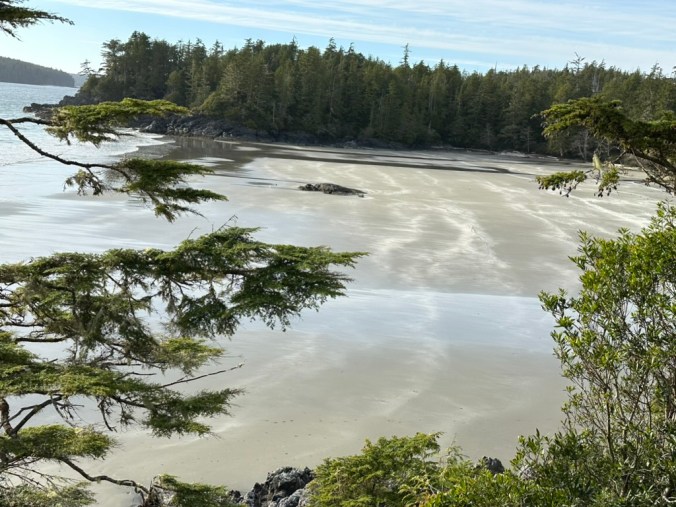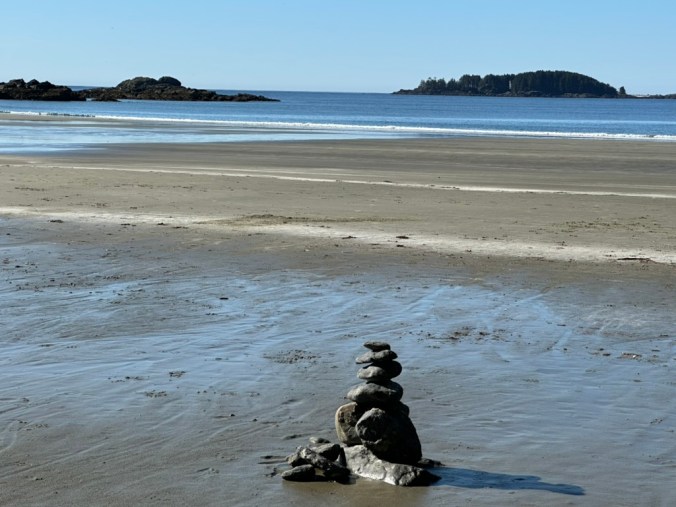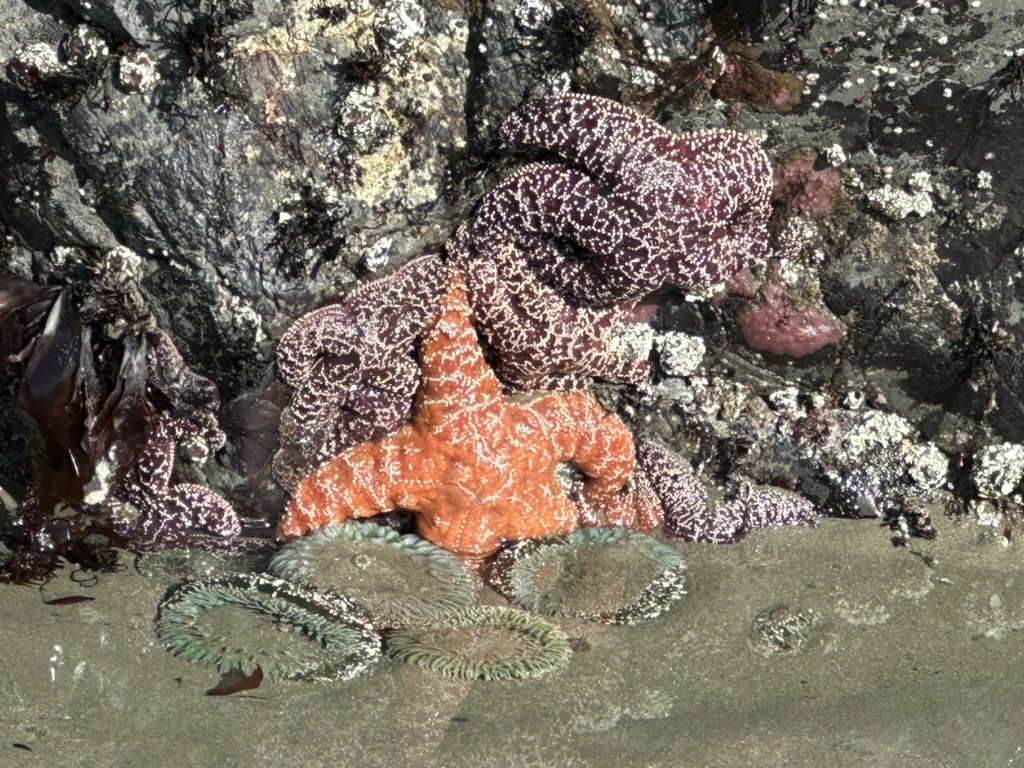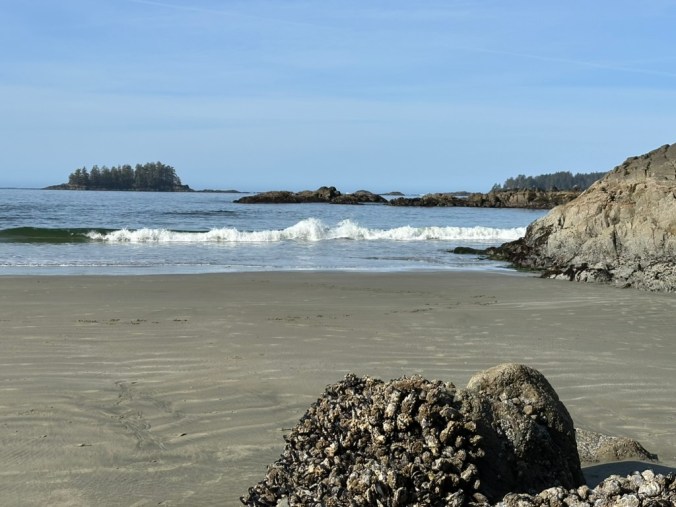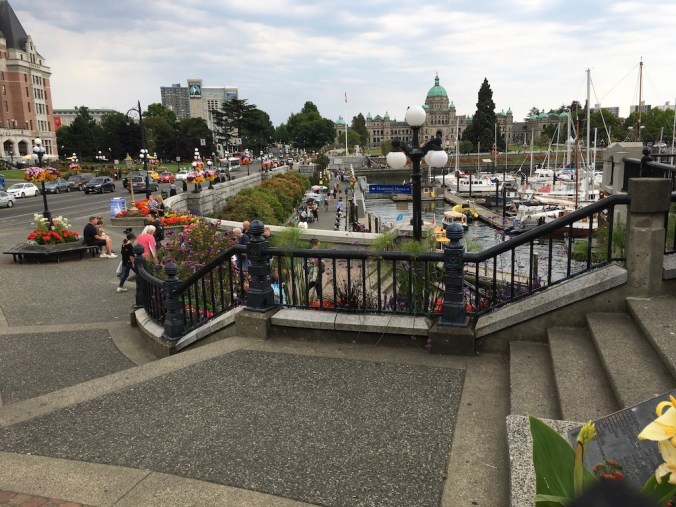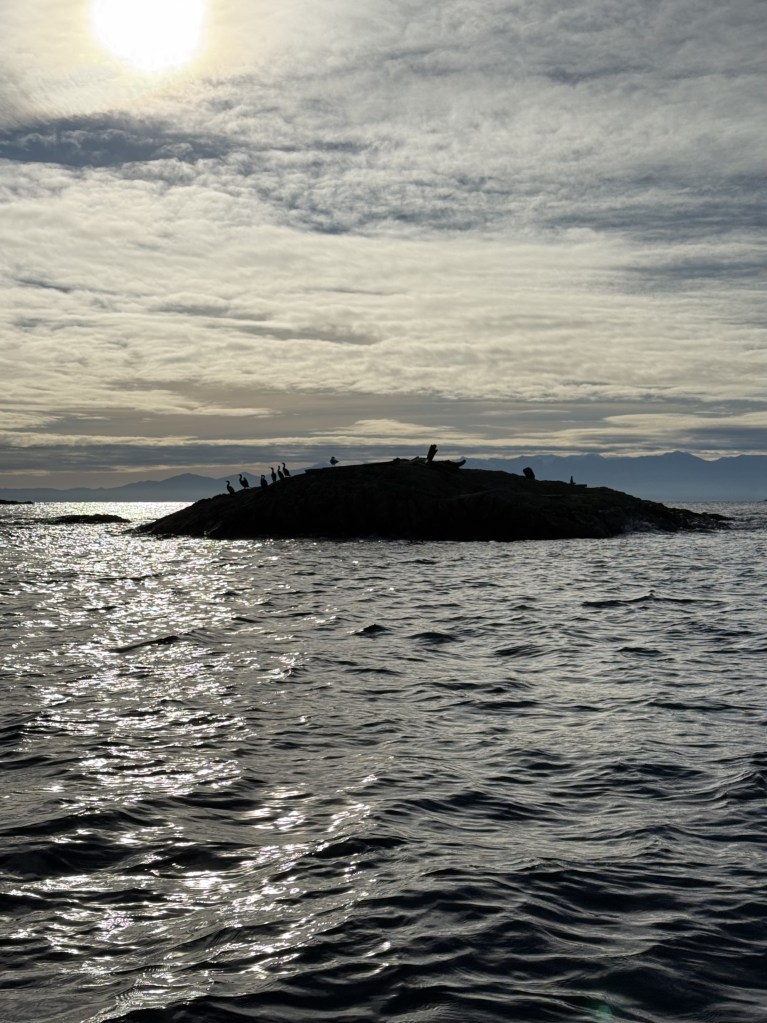It is time to get back to writing. Early in July, I wrote in my journal-ish notebook that I was struck with the notion of trusting the deep-down rightness of my life. You see, a lot of stuff worried me, some made me a bit fearful, most were things I could do nothing about, and some really didn’t matter to that deep-down rightness. The part I want to remember is that I get stuck on the surface of what seems real at the time—my experience, my reaction to change, and the inevitable unknown.
At about that time, Mitch was reading a book by James McBride, Miracle at St. Anna. Being between books myself that day, I read the prologue of McBride’s book and wrote this quote in my notebook:
“…[ the newspaper] landed on the table…as if God had place it there, which He, in fact, had.”
My first thought, as I copied these words, was that having close friends in my life is a gift God has placed here for me. That day, Colina and I took the ferry to Vancouver to meet Sabine and her cousin from Nova Scotia for lunch. Sabine drove herself and her cousin Carolyn across the city to meet us at the restaurant near the ferry terminal. It was an occasion— a chance for me to meet Sabine’s closest family and her to meet us, Sabine’s close friends. Being included, I witnessed one of those times that called me to pay attention to the tears that pointed to the thinness of those few hours.
After our lunch, Colina and I boarded the ferry home and Sabine and Carolyn made their way back across the city. You see, a few days before our day together, I had read an excerpt from Buechner’s reflection on Psalm 23. I pondered how it reached a deep cord in me, again. My friendship with this particular piece of writing over decades caught me anew.
Not at every moment of our lives, heaven knows, but at certain rare moments of greenness and stillness, we are shepherded by the knowledge that though all is far from right with any world you and I know anything about, all is right deep down. All will be right at last. I suspect that is at least part of what “He leads me in the paths of righteousness” is all about. It means righteousness not just in the sense of doing right but in the sense of being right—being right with God, trusting the deep-down rightness of the life God has created for us and in us, and riding that trust the way a red-tailed hawk rides the currents of the air in this valley where we live. I suspect that the paths of righteousness he leads us in are more than anything else the paths of trust like that and the kind of life that grows out of that trust. I think that is the shelter he calls us to with a bale in either hand when the wind blows bitter and shadows are dark.
That day in the sun with trusted friends was a moment of love and belonging, even when there were many things that were far from right in any of our worlds.
Another time months before, the three of us stood outside Sabine’s house mere minutes before she would leave her home of a quarter-century without having found her new place, yet. We’d packed up her life until then and cleaned the house that had welcomed many over the years. The new owners were eagerly waiting at the end of the driveway to receive the keys to what would now be their new home.
Sheltered by the hill as we walked out the door, Sabine paused and said, “Let’s pray.”
That moment brings tears of deep down rightness to my eyes even now, more than a year later. Three friends huddled together and each of us voiced our prayer of gratitude for the lives that were welcomed and cared for and made better through all manner of joys and struggles and abundance and loss, in this very place. I’m sure we prayed for whatever new place Sabine would find to continue her kindness and generous wisdom. And she did. And after our lunch in Vancouver, she realized she would never get to live in that new home in Victoria.
There are a lot of things to be filled in at this point in the story, but these things are not needed for this telling. In the days between our prayers and when Sabine let go of her final breath in July of this year, from my side of our friendship, I witnessed boundless lessons of trust.
When some of us get stuck on the surface of our experience, more than not, we create a story that is our perception rather than facing what is right in front of us. Sabine faced with courage and trust what was right in front of her.
Buechner discerns the difference in being led not to “do right” but in the sense of being right—being right with God’s spirit, trusting the deep down rightness of the life God has and is creating within us and riding that trust, using whatever metaphor works for you. I want to step into that path of trust that takes away fear, just like the morning light, and rest in those moments when the shadows are dark. I forget. So for me, this is not a once for all decision but one I make one moment at a time.

